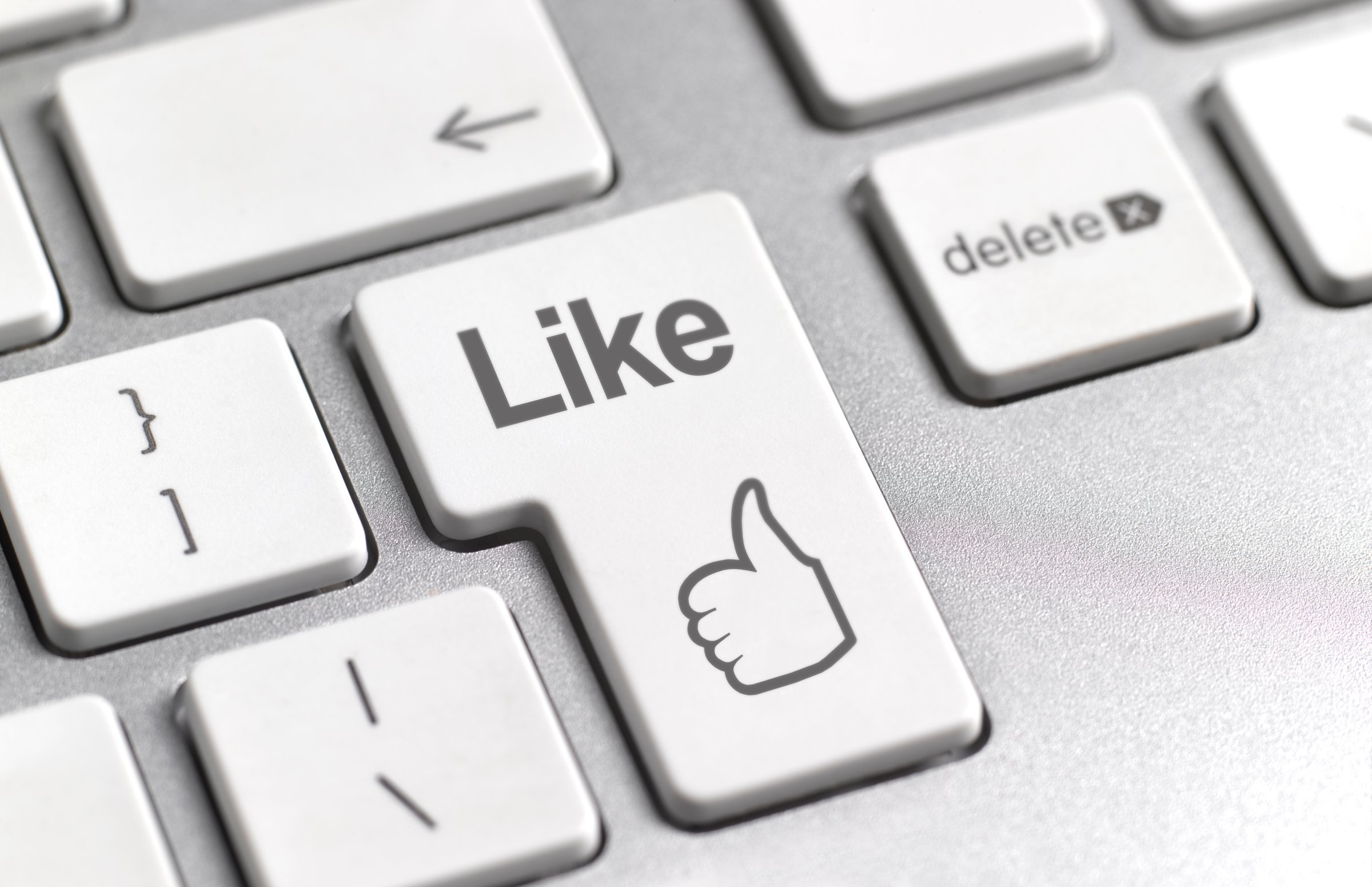
Nobody knows us better than our family and friends, right? Who else could predict how we’ll react to good and bad news, or whether to pick the pie or ice cream for dessert?
Facebook, for one. Researchers at the University of Cambridge and Stanford University studied how Facebook Likes matched up with people’s own answers on personality tests, as well as those of their close family and friends. With enough Likes of objects, brands, people, music or books, the computer was better at predicting a person’s personality than most of the people closest to them—with the exception of spouses. (They still know us best, it seems.)
This Is What Your Facebook Profile Looked Like Over the Last 11 Years
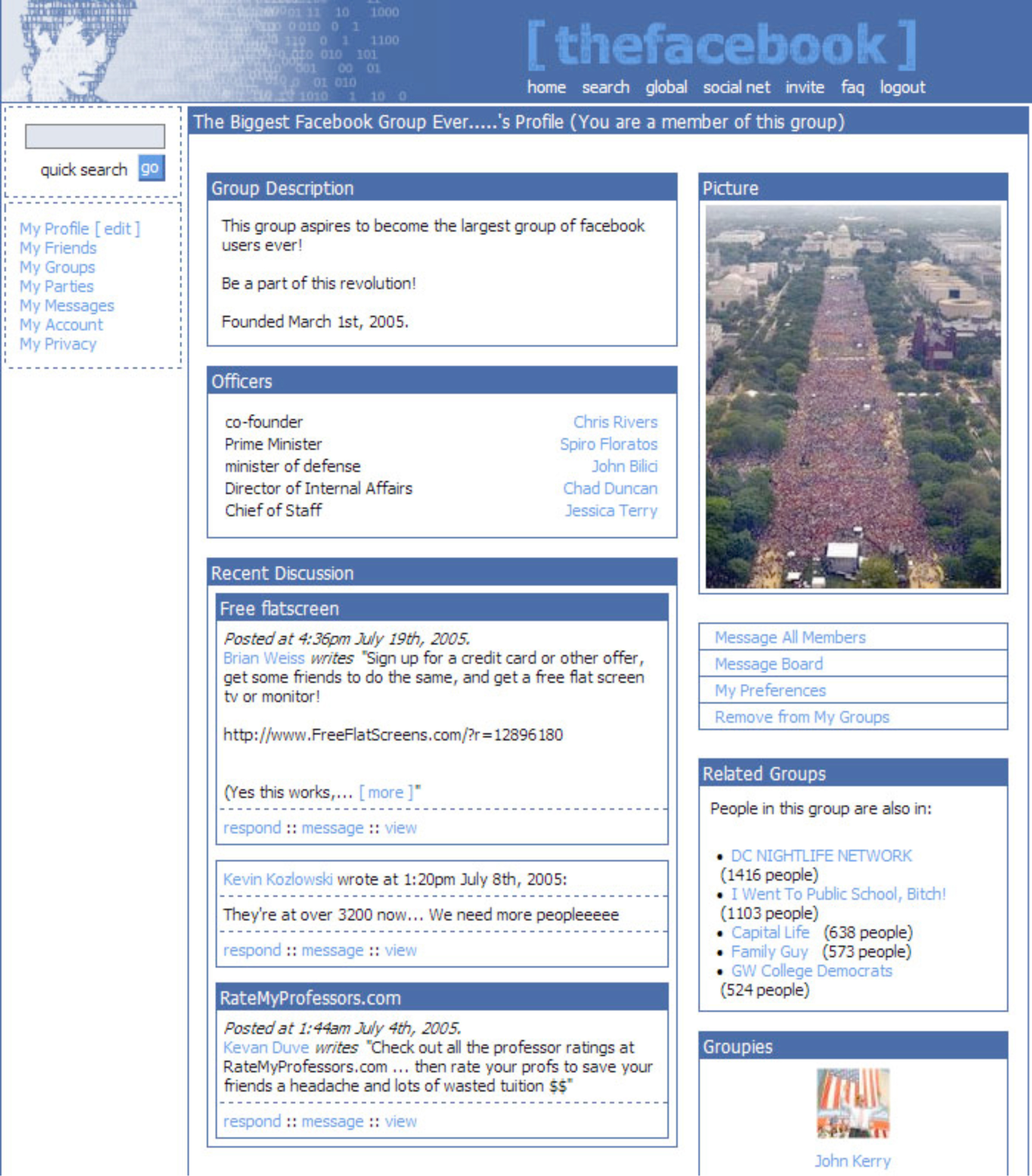
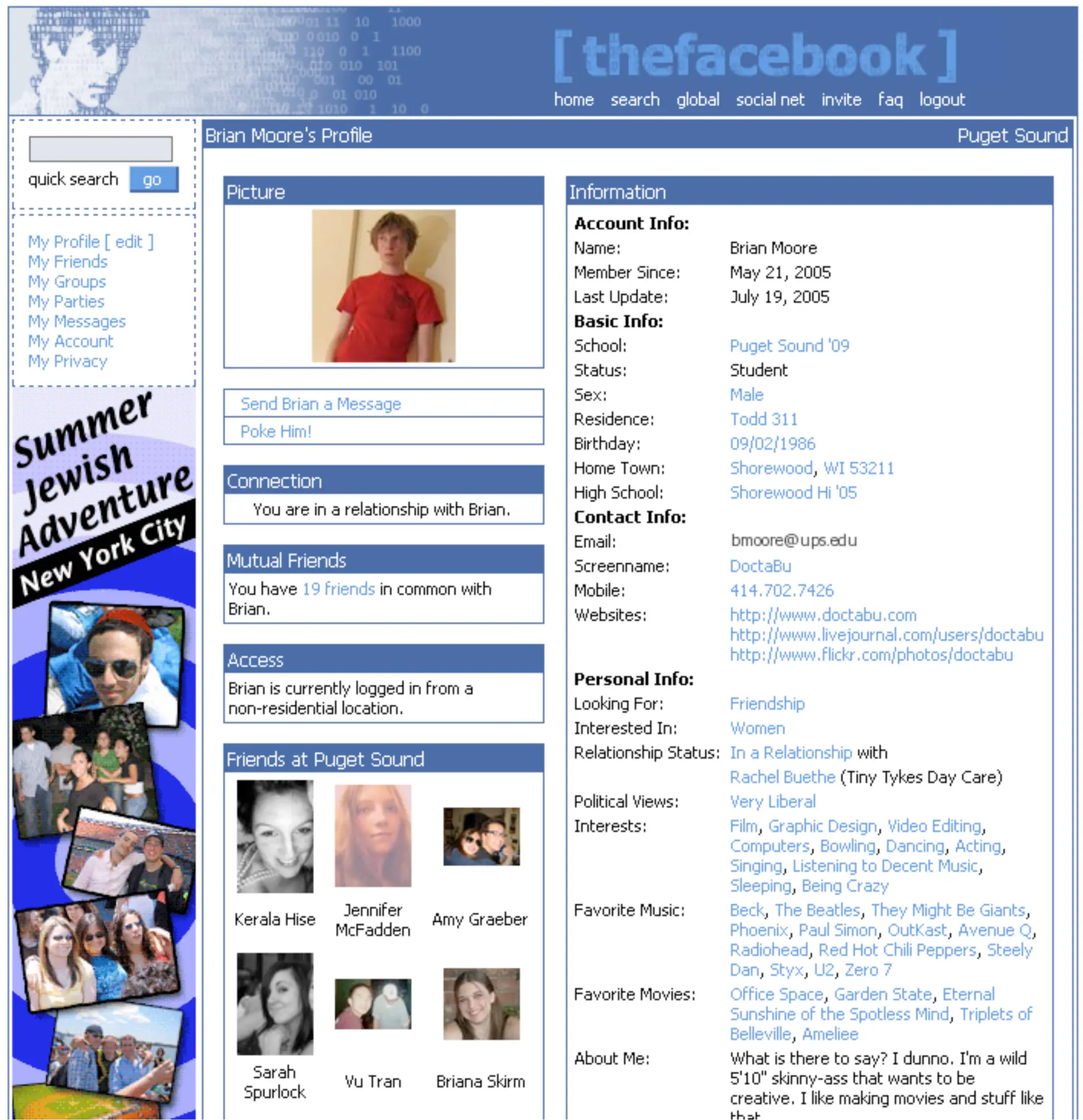
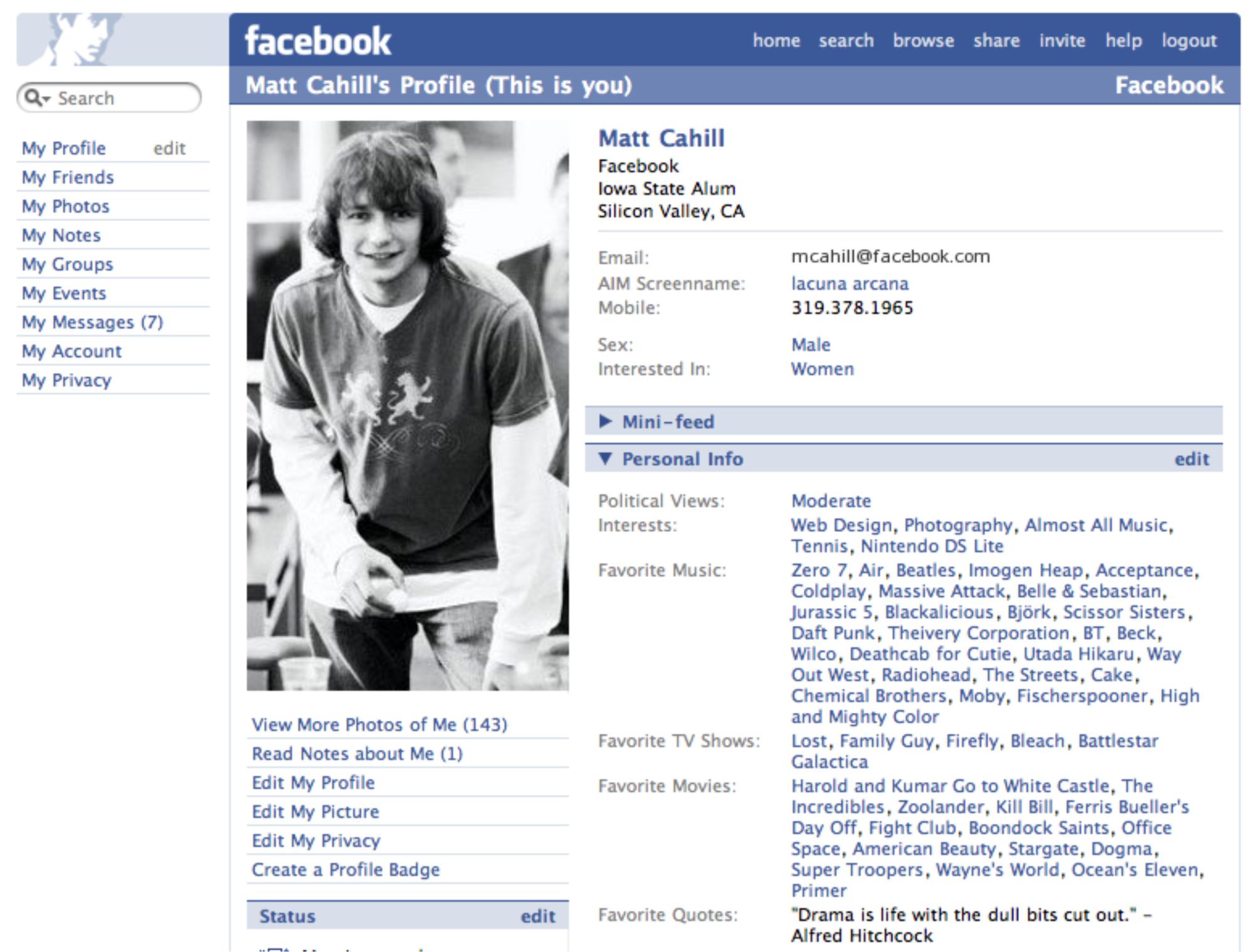
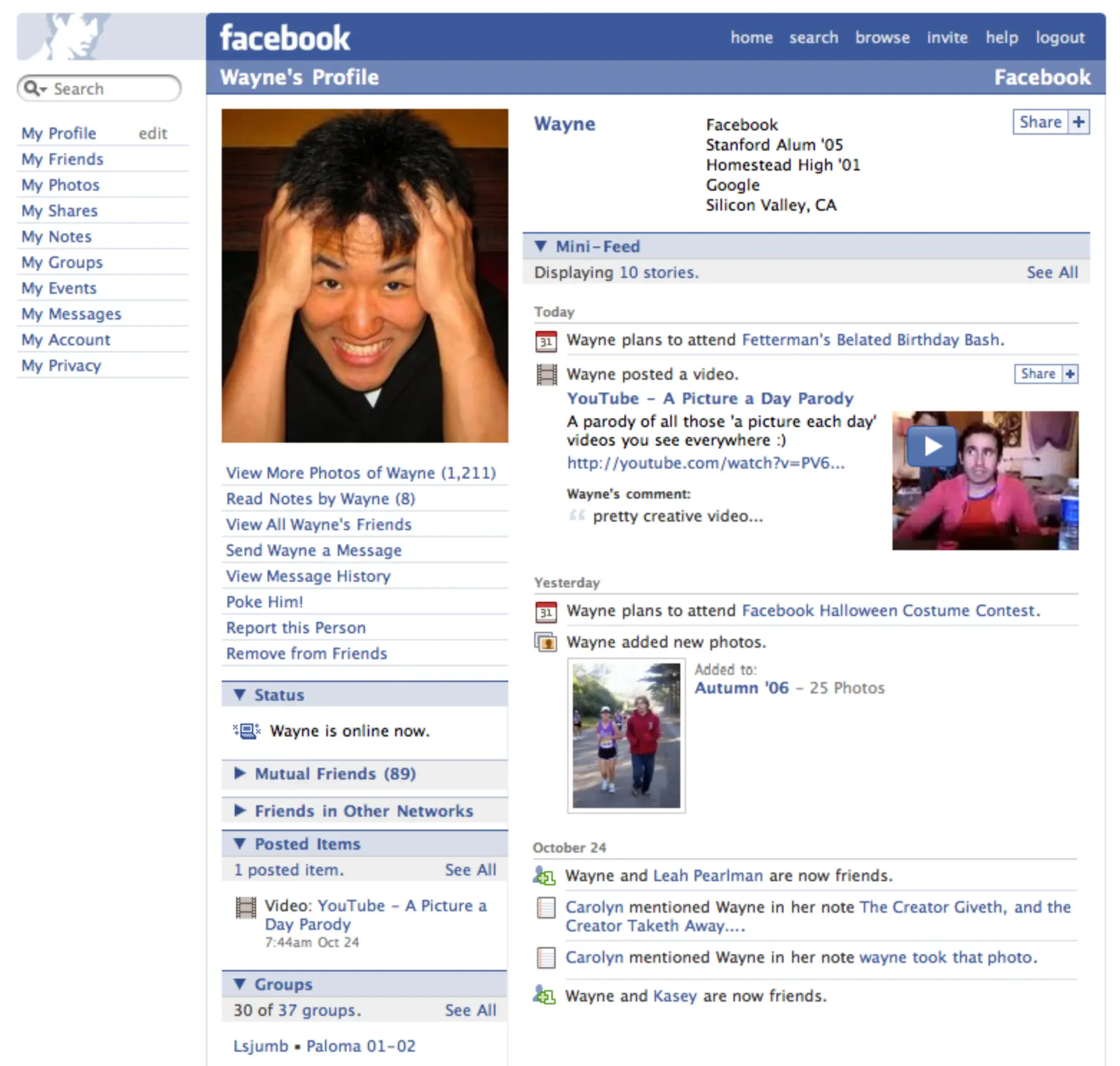
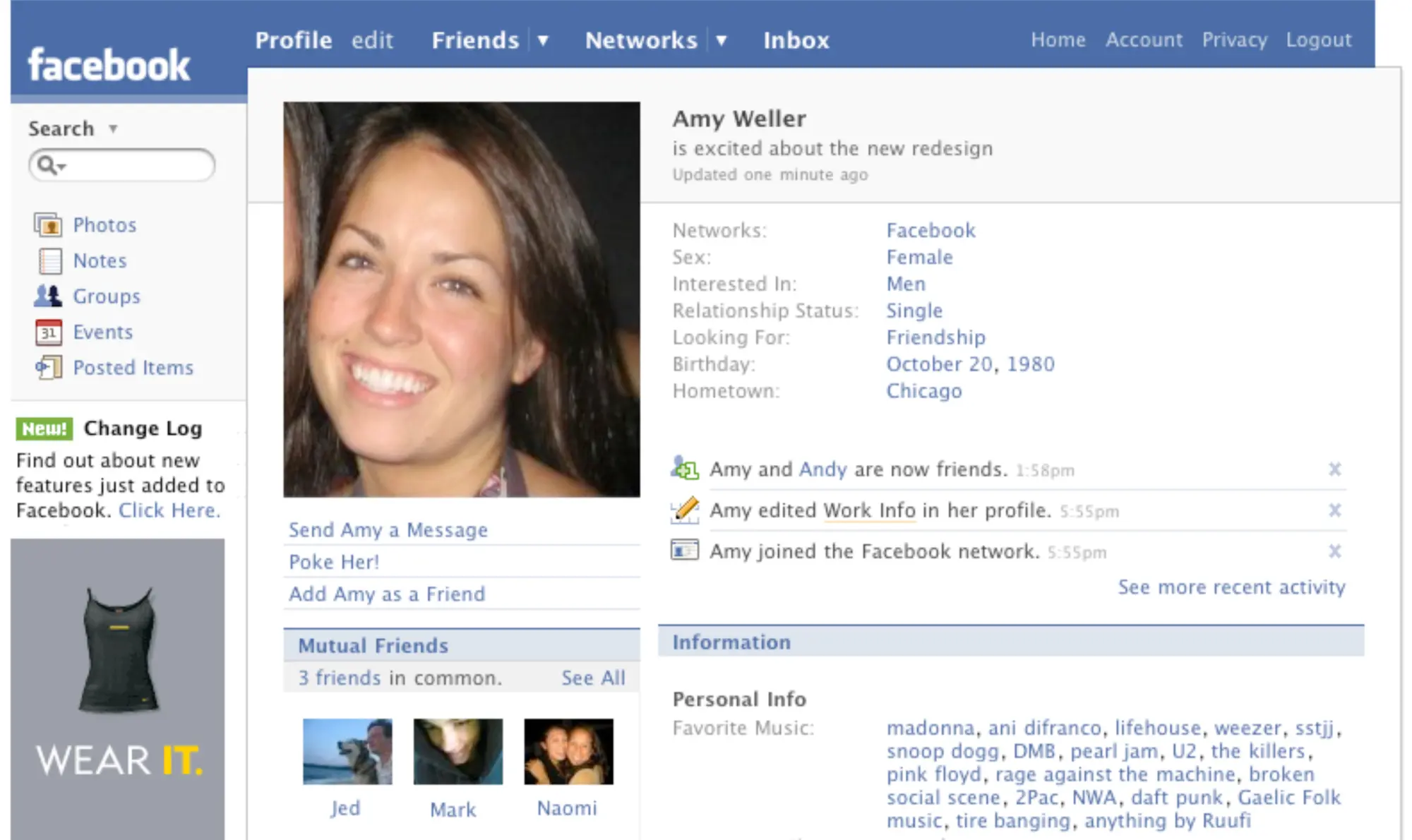
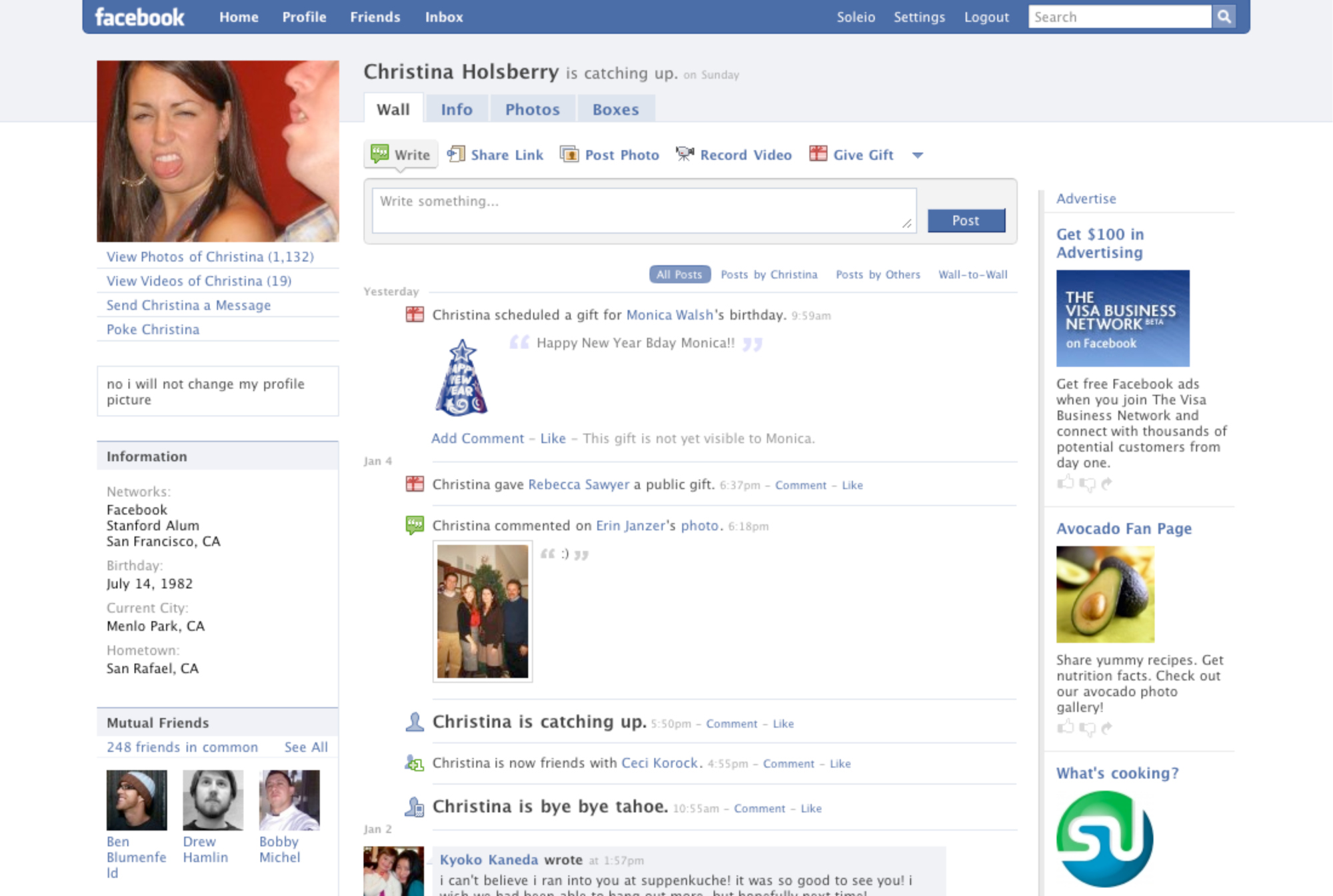
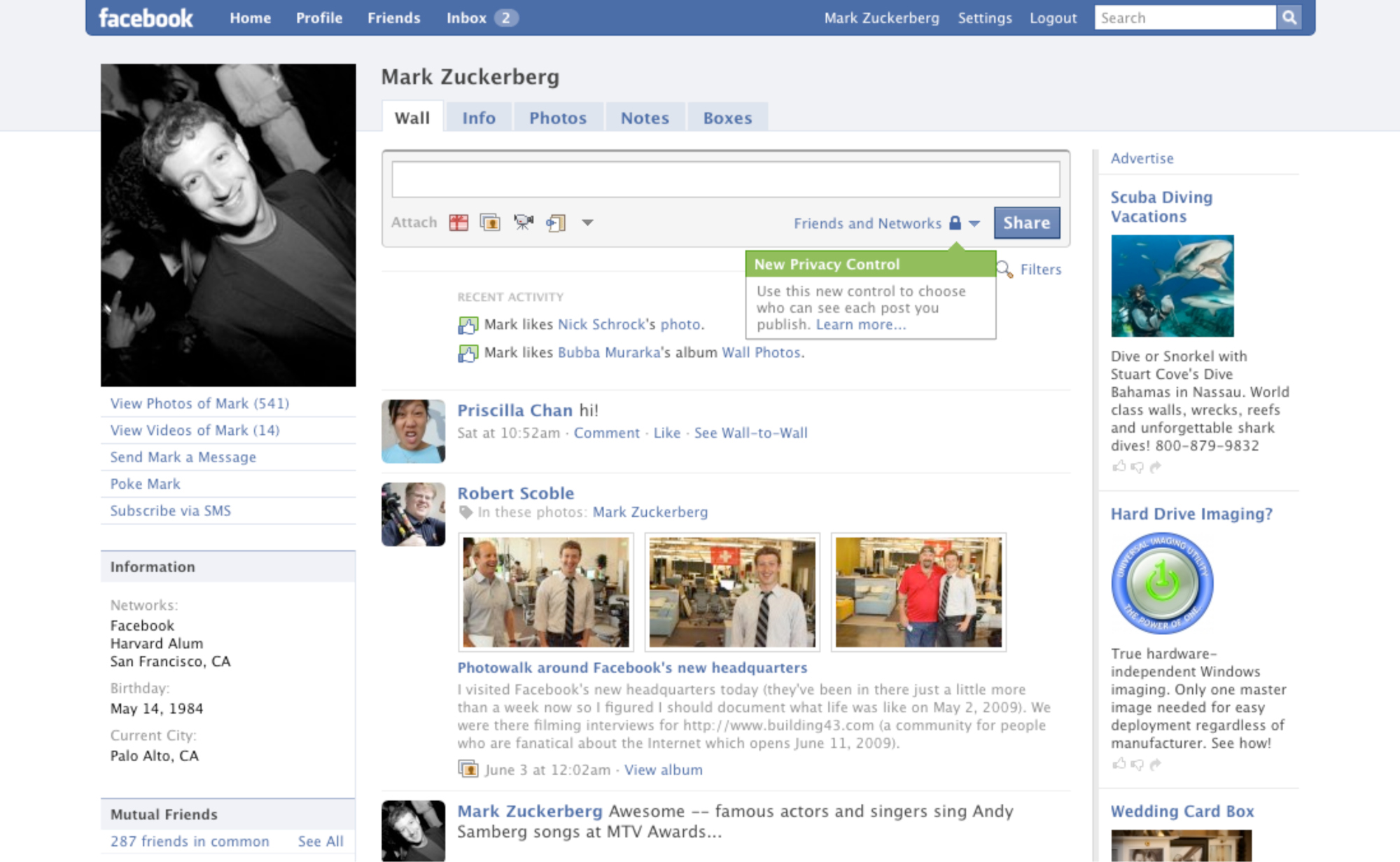
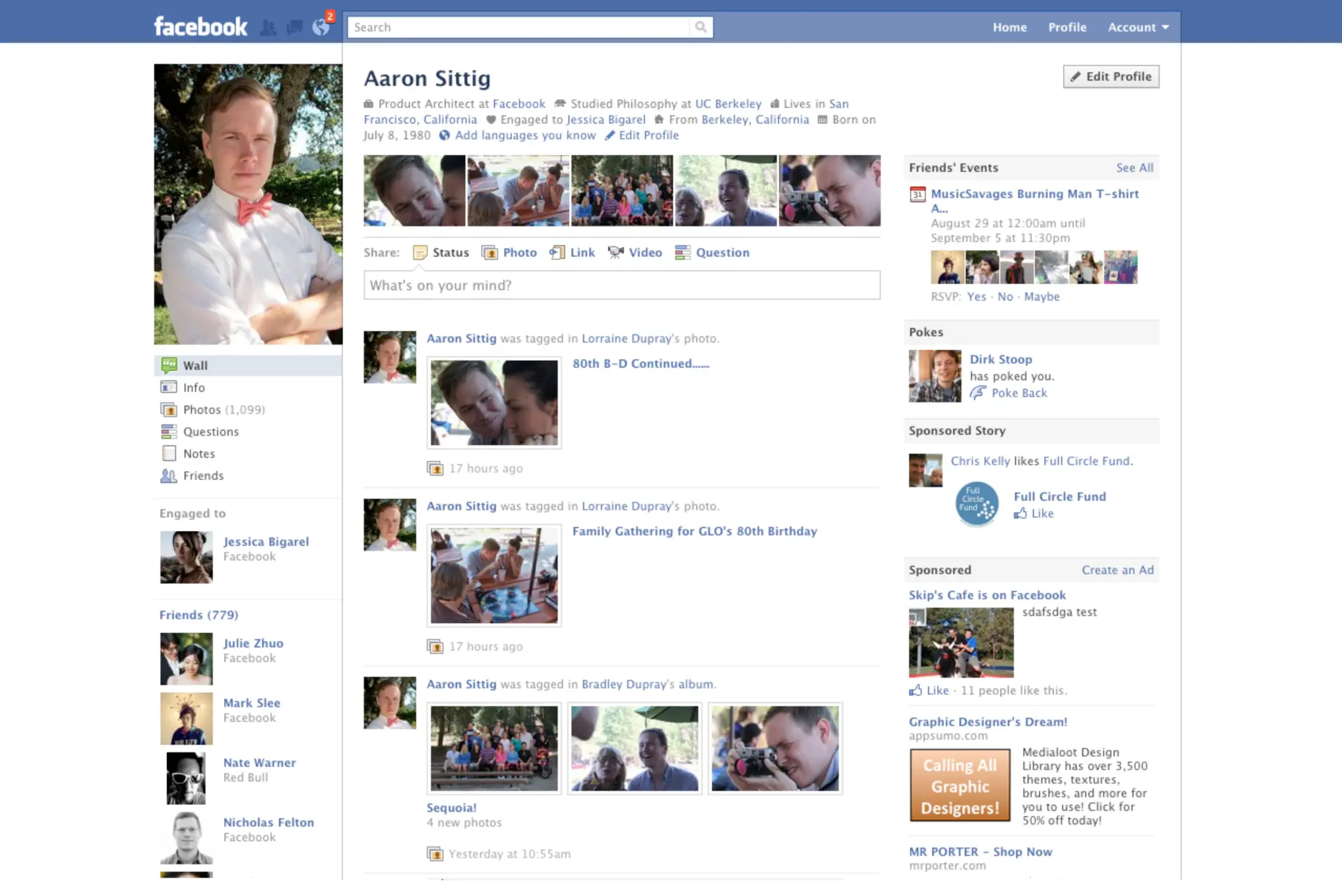
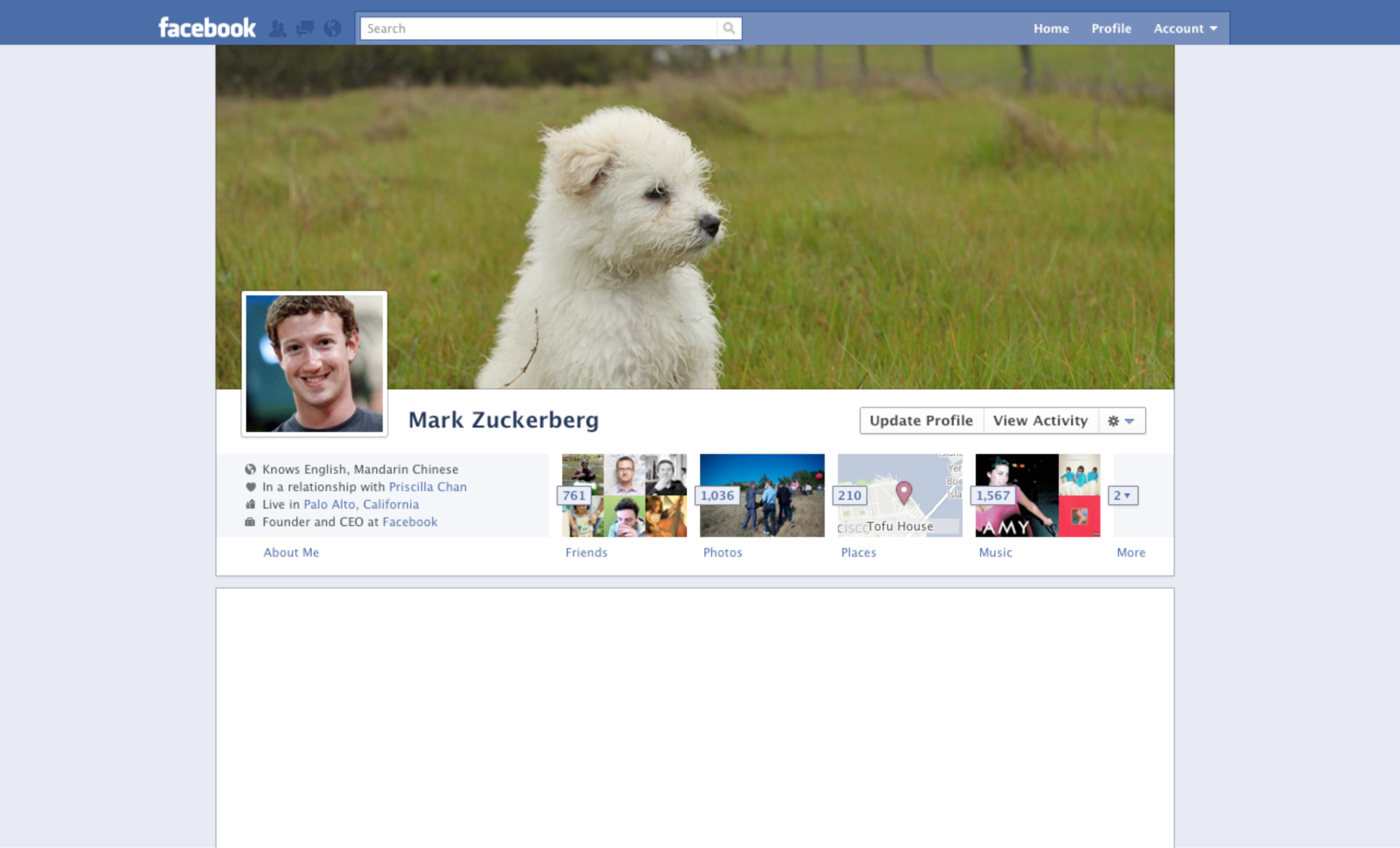
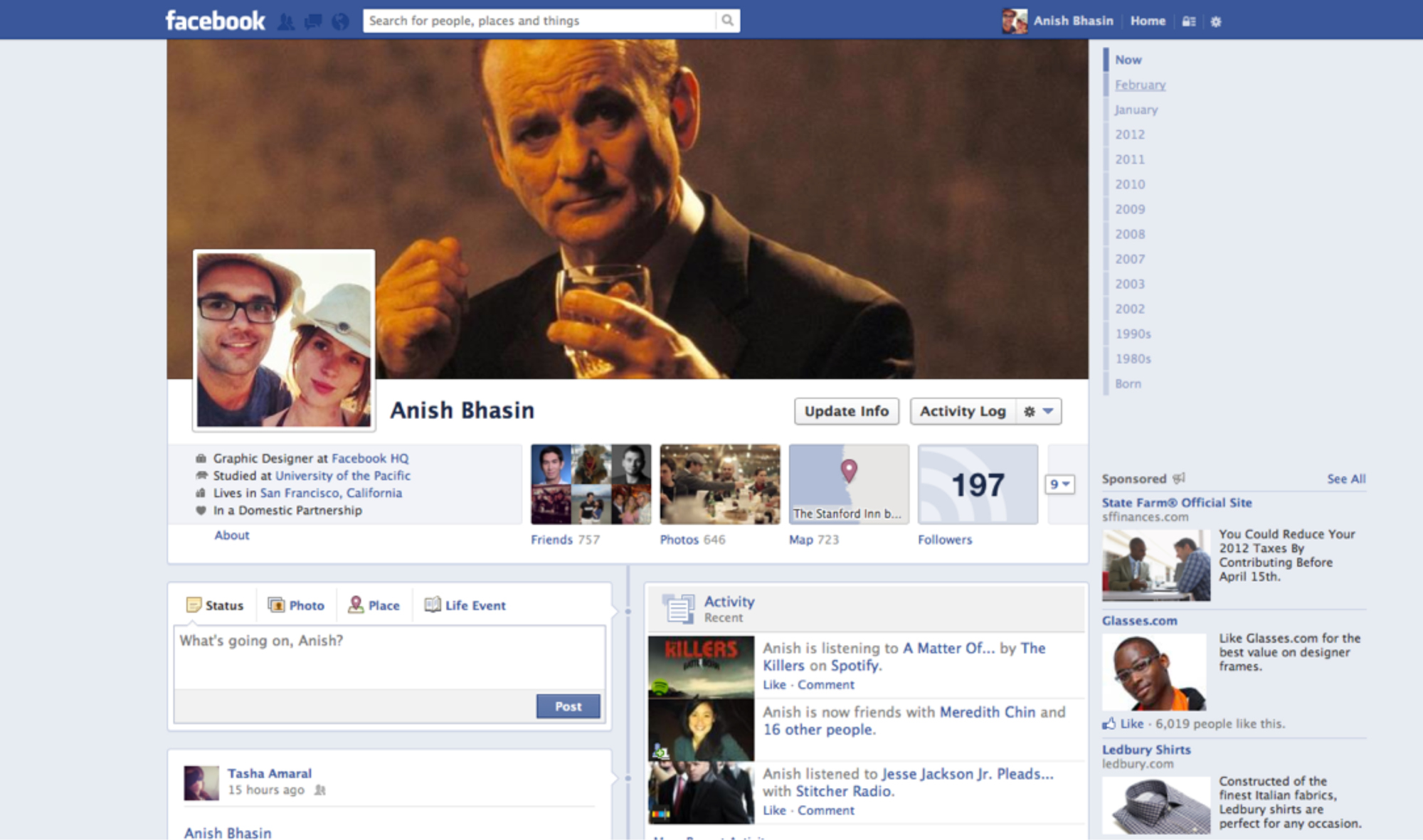
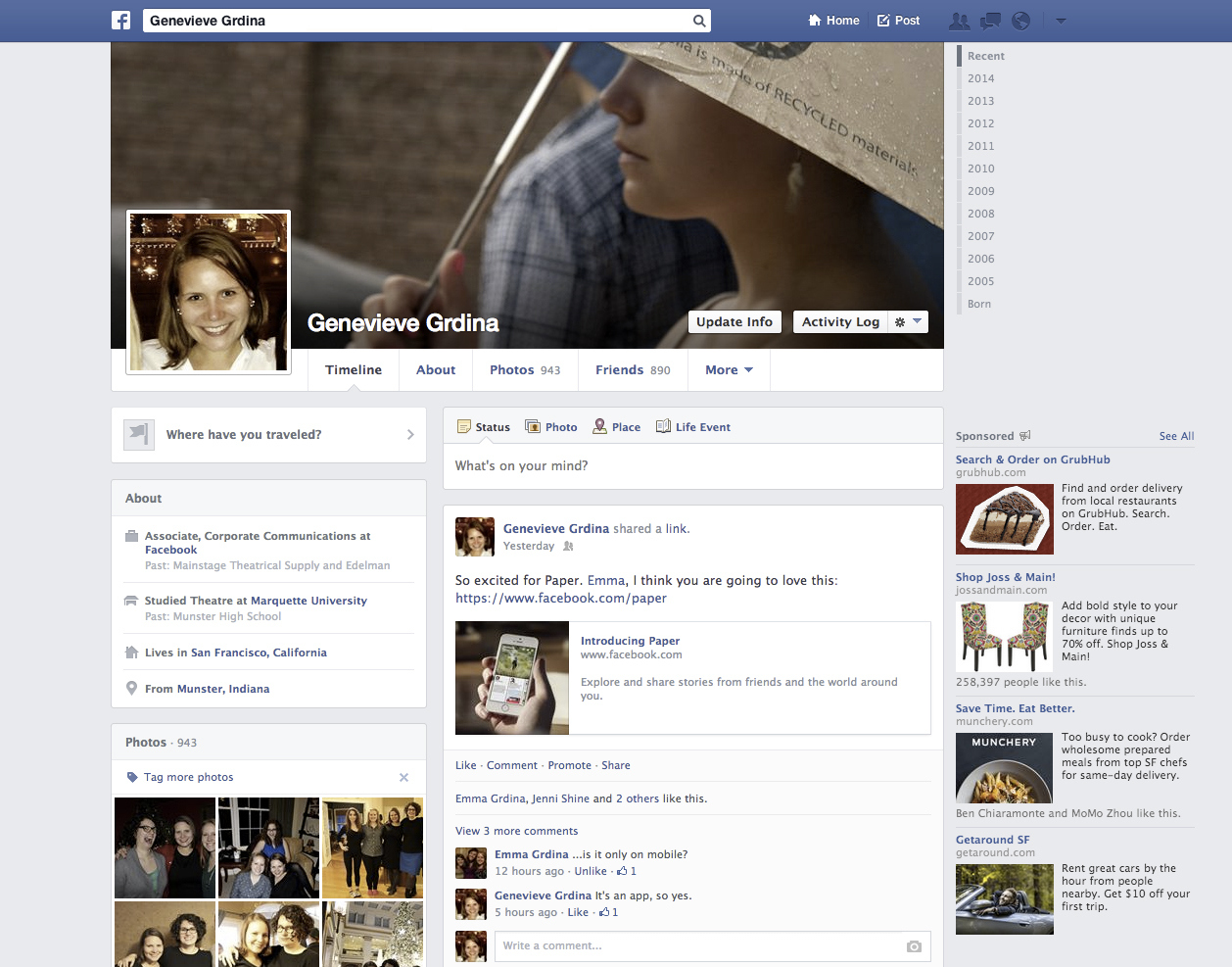
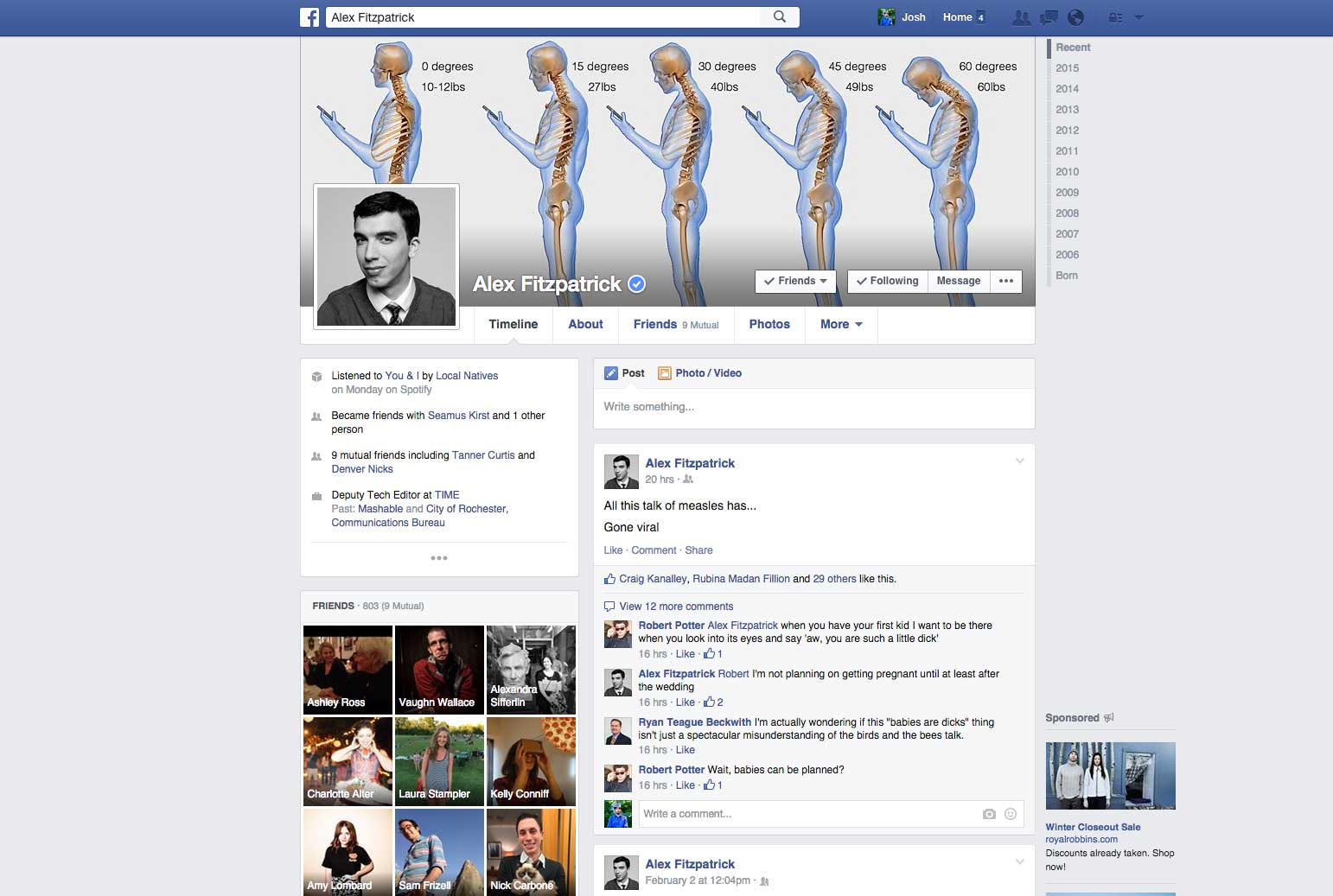
MORE: Why a Facebook ‘Sympathize’ Button Is a Terrible Idea
Wu Youyou, a PhD student in the Psychometrics Center at the University of Cambridge, and her colleagues had previously investigated how computer models could predict demographic and psychological traits in people. But inspired by the movie Her, they were curious about how the models would do in evaluating personality traits. They asked 86,220 people on Facebook to complete a 100-question personality survey that determined where they stood on the so-called Big Five traits: openness, conscientiousness, extraversion, agreeableness and neuroticism. They then analyzed their Facebook Likes to generate a model in which Likes were linked to the traits. Likers of meditation, TED talks and Salvador Dali, for example, tended to score higher on openness, while those who liked reality star Snookie, dancing and partying were more extraverted.
On average, people on Facebook had 227 Likes, and this was enough information for the computer to be a better predictor of personality than an average human judge (in other words, a friend), and almost as good as a spouse. The more Likes, the better the computer got. It only took 10 Likes for the computer to outperform a work colleague, for instance, 70 to do better than a friend, and 150 to outscore a family member.
MORE: How Well Do You Know Your Facebook Friends?
“We know people are pretty good at predicting people’s personality traits, because it’s such an important thing in all of our interactions,” says Youyou. “But we were surprised by how computers were able to do better than most friends by using just a single kind of digital data such as Facebook Likes.”
Computers are such good predictors because they can take all the Likes at face value and treat them equally, says Youyou’s co-author Michal Kosinski from Stanford’s department of computer science. People tend to forget information if it’s not top of mind and tend to give more weight to memorable or recent events, potentially biasing our evaluations. But computers can treat each piece of information objectively.
MORE: Your Facebook Profile is Also a Professional Tool
Still, the computer strategy isn’t always entirely accurate. It can’t account for changes in people’s moods and behaviors and outlooks, and given that people are notoriously dynamic, that could be a problem. (People who scored higher on the extraversion scale, for example, did like meeting new people but also inexplicably Liked Tiffany & Co., while those who were more conscientious expressed preferences for mountain biking and motorcycles.) But Kosinski thinks that this kind of computer modeling could help processes like career planning and job recruitment. People just entering the job market could benefit from such personality profiling, which could better link them to the right industries and jobs in those sectors. A free spirit who likes to travel, explore and take risks, for example, likely wouldn’t be happy as an accountant, while an introverted person wouldn’t be ideal for a marketing or public relations position.
Kosinski also speculates that computers could streamline job recruitment. Many companies use personality questionnaires, especially when seeking high-level executives, but such questionnaires can be inaccurate and unreliable, as candidates are incentivized to give the answers they think the company wants to see. Computers might be able to come up with a more accurate personality profile than these questionnaires, if the Facebook data are any indication.
Kosinski recognizes that applying such models is tricky. “We have to be really cautious and make sure we don’t upset people and don’t do anything that breaches the trust between the applicant and the employer, if the employer starts testing without explicit consent,” he says. “But we certainly hope that these technologies can be used to better human life.”
Read next: How Much Time Have You Wasted on Facebook?
More Must-Reads From TIME
- The 100 Most Influential People of 2024
- The Revolution of Yulia Navalnaya
- 6 Compliments That Land Every Time
- What's the Deal With the Bitcoin Halving?
- If You're Dating Right Now , You're Brave: Column
- The AI That Could Heal a Divided Internet
- Fallout Is a Brilliant Model for the Future of Video Game Adaptations
- Want Weekly Recs on What to Watch, Read, and More? Sign Up for Worth Your Time
Contact us at letters@time.com